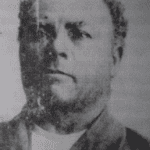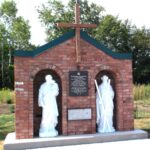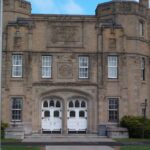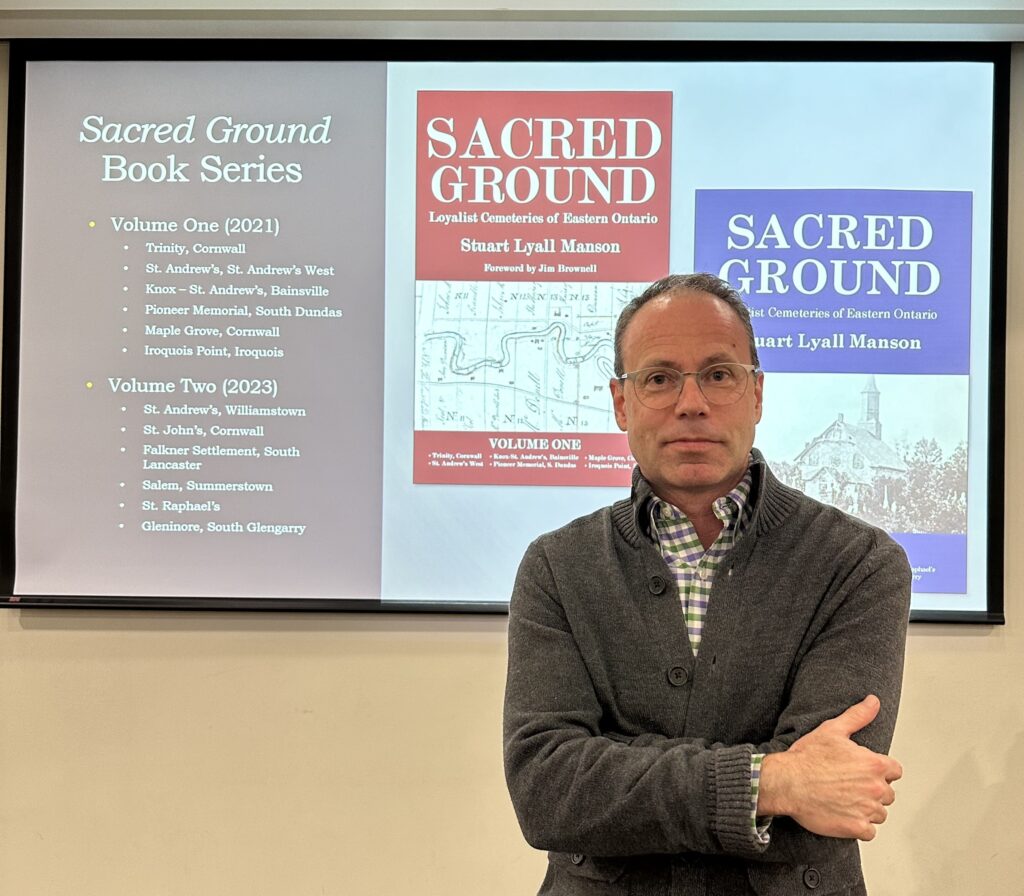
Naming Lake St. Francis, just off of South Lancaster, Canada’s “Bermuda Triangle,” due to the number of “accidental” deaths throughout the late 18th century, author Stuart Lyall Manson’s presentation on Thursday, November 30th at the Cornwall Public Library, promoting his new book “Sacred Ground,” Vol. II, opens a new way of viewing the region’s history.
Peppered with questions throughout and after the presentation by the audience, Stuart pointed out that historic cemeteries were direct, tangible links to our past and that tombstones were authentic documents and artifacts. That is, if the inscriptions on the tombstones are accurate! It never occurred to me that they might not be, but Stuart said that the information provided at the time might be incorrect and that the wording on restored stones was sometimes misinterpreted.
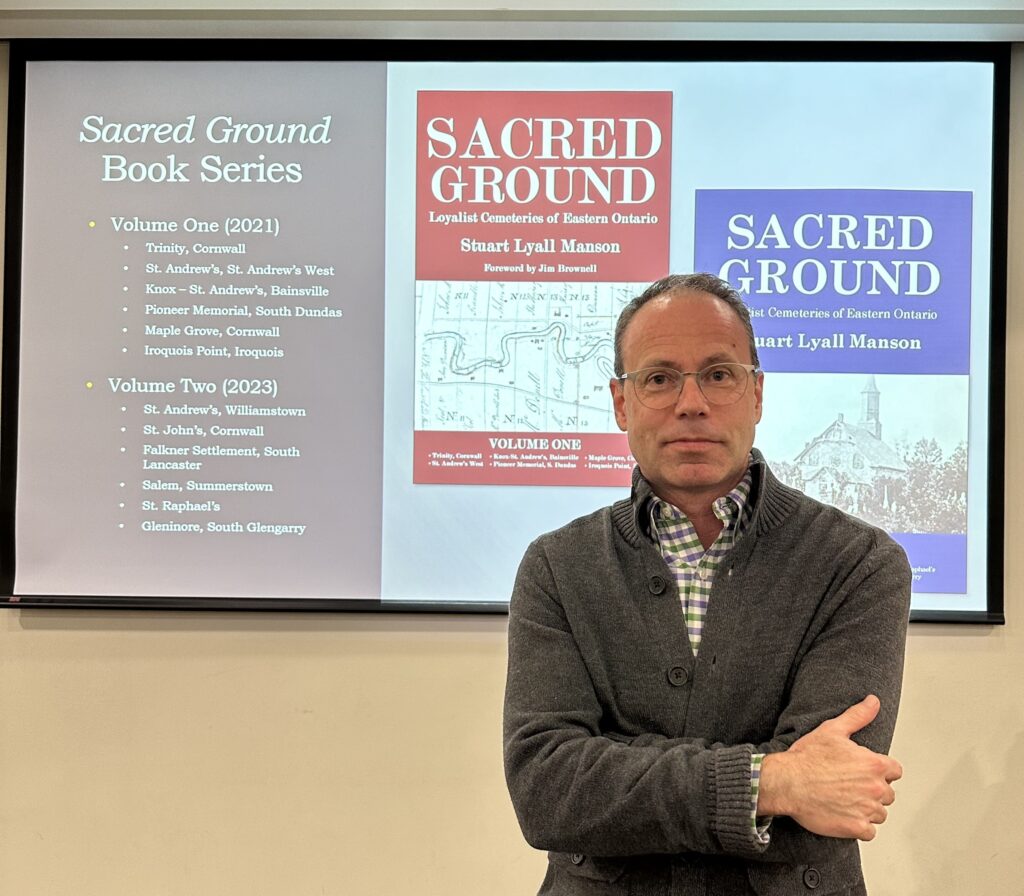
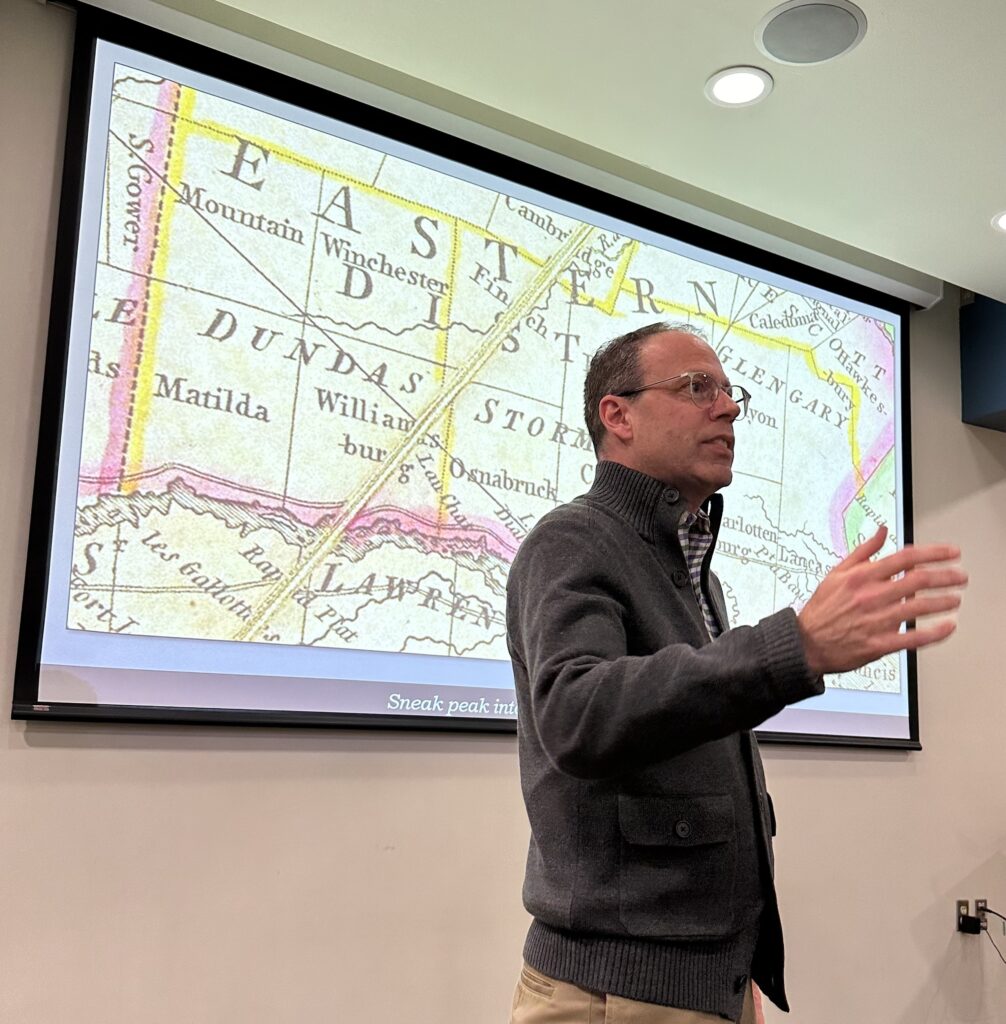
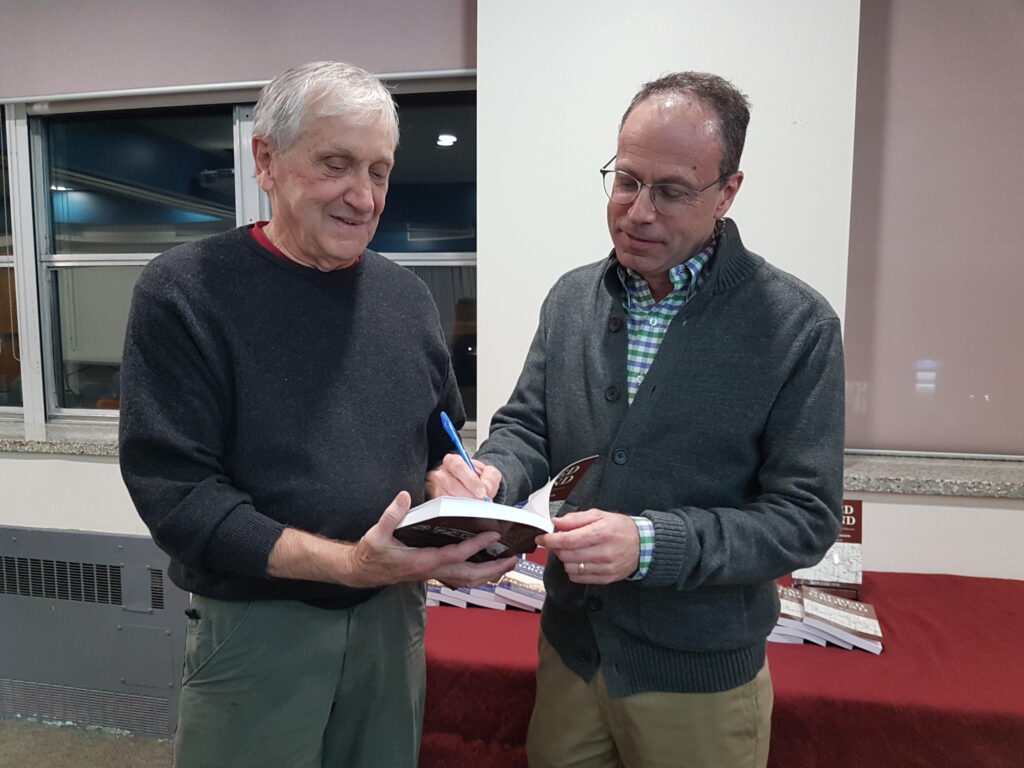
Captions for photos above: Photo 1 – Local author and “24/7” historian Stuart Lyall Manson preparing to deliver his entertaining and engaging talk about his two recent books at the Cornwall Public Library. (Photo courtesy, Michelle Girard-Manson.)
Photo 2 – Stuart Manson spiritedly explaining a finer point of history to the audience during his library presentation. Unlike many speakers, who use powerpoint as a crux, Stuart seamlessly integrates the images on the screen into his talk. (Photo courtesy, Michelle-Girard-Manson.)
Photo 3 – Stuart signs a book just purchased from a member of the audience after the presentation. (Photo courtesy, Don Smith.)
Focusing on United Empire Loyalist citizen soldiers and their families, Stuart noted that to the American rebels, that the Loyalists were the rebels, while the American “freedom” fighters were the patriots.
Stuart also pointed out that history as often recorded appears to place all of the danger on the soldiers, while it was the women and children, left behind enemy lines often faced the greatest danger.
He continued that in the 19th century people in “mixed marriages,” that is Protestant and Catholic, could not be buried together due to strict religious principles.
The presentation ended with the tragic story of the demolition of the old Presbyterian cemetery on Sydney Street in Cornwall. Now a field filled with unmarked graves, Stuart confirmed that there is a possibility that there are former gravesites under Sydney Street. After revealing this appalling situation Stuart confirmed that there are ongoing efforts across Ontario to save these ‘Sacred Grounds.”
Stuart’s two recent local history books and welcoming, enthusiastic and informative packed lecture style makes him Eastern Ontario’s leading contemporary historian.
When asked what he plans next? Stuart responded in a typical historian’s fashion with two scenarios, either volume three about Dundas County’s historic cemeteries or the history of the local militia. Whichever one he selects, will be worth having!
Both volumes of “Sacred Ground – Loyalist Cemeteries of Eastern Ontario,” are available at Red Cart Books in Cornwall.


